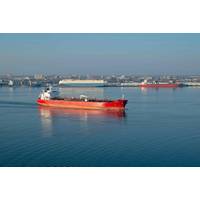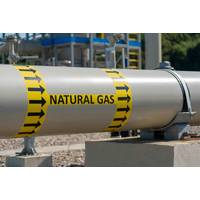The consortium behind the proposed Nord Stream 2 expansion that would boost Russian gas supplies to Europe needs to do a better job easing fears the project will dent the region's energy security, a member of the consortium said on Wednesday.
In September, Gazprom formed a consortium with E.ON, BASF/Wintershall, OMV, ENGIE and Royal Dutch Shell for Nordstream-2, which could see Russia bypass Ukraine as a transit route from 2019.
That plan has met opposition among a number of countries, especially a clutch of former Soviet-bloc nations in central Europe that fear Russian domination of energy supplies.
In November, 10 European governments - including the Czech Republic, Slovakia, Hungary and Poland - called on the European Commission for a summit-level debate on the issue, saying Russia's plan to extend its gas link to Germany ran counter to EU interests and risked further destabilising Ukraine.
Rainer Seele, chief executive of Austria's OMV, said Nord Stream 2 backers needed to step up efforts to highlight how the project would help rather than harm European interests.
"We have to increase the efforts to convince the European Commission that this is a project which is in the interest of Europe," Seele told reporters on the sidelines of the European Gas Conference.
"We have to define the project and we have to better explain it in Brussels."
While the European Union and the United States have imposed sanctions on Russia because of its annexation of Crimea and support for separatist rebels in eastern Ukraine, energy ties between Moscow and Europe remain deep. Russia provides around a third of the EU's energy needs.
Russia's Gazprom already sends gas to Germany across the Baltic Sea via the Nord Stream pipelines, and the proposed Nord Stream 2 project would double capacity to 110 billion cubic metres per year.
Bypassing Ukraine would also allow Gazprom to avoid pricing disputes with Kiev that led to supply halts which affected western Europe in 2006 and 2009 but would deprive Kiev of transit fees.
Seele said the project would adhere to EU rules and could benefit nations in southeastern Europe by directing more supplies to Austria's Baumgarten hub and then on to those countries.
It would bring more gas to Europe in coming decades when demand rises amid falling production in western Europe, he added.
"There's lots of misunderstanding also what is behind the project," Seele said.
"The countries which are opposing are not representing Europe. There are many countries which are supporting the project and they are clearly saying the project is in the interest of the countries."
(By Michael Kahn and Shadia Nasralla)





